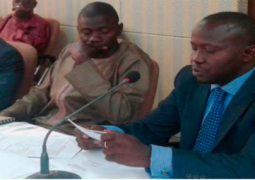Over the last four to six months the Gambian dalasi has been rapidly depreciating against major currencies, causing a shock and giving rise to a negative trend in business transactions and people’s livelihood.
This situation has raised serious cause for concern among the Gambian public, as it would impede growth and lead to many other negative impacts on businesses, the national economy and the lives of people in the country.
The dalasi has kept sliding, over recent months, against major international currencies such as the dollar, pound sterling, euro and the CFA.
Currently, it is exchanged for around D75 to a British pound, D50+ to a US dollar, D55 to a euro, and D425 to CFA 5,000.
This is about a 20 per cent depreciation of the Gambian dalasi, which was being exchanged, for instance, for D40 to a dollar less than six months ago.
There are always various factors of a currency
losing its purchasing power relative to others.
These include inflationary pressure – when, in general, prices tend to rise rather than fall; national trade deficit - when the total value of a country’s imports exceeds the total value of its exports, meaning that it is buying more from the rest of the world than it is selling to the world; and monetary policy – when the central bank tries to make sure there is enough money in supply to accommodate economic growth, which sometimes leads to inflation and causes currency deprecation.
There is also unnecessary speculation and hoarding by foreign exchange or forex dealers, which causes a rush for and shortfall of foreign currencies in the market.
Talking about monetary policy, economic analyst Sue-Lynn Carty says: “When the government increases the money supply - which it can do by simply printing more money or by buying up Treasury securities - the effect is currency depreciation. There’s more money out there to meet demand, so the value of one ‘unit’ of that currency declines.”
We may not be in a position to tell outright what
is really affecting the country’s legal tender, but it is obvious that the
resulting consequences of the slide of the dalasi are grave, as it continues
dwindling financial savings, impeding business growth, weakening the economy
and increasing the government’s debt burden.
There could also be an upsurge of substantial cash withdrawals from banks by depositors.
Therefore, the rapid depreciation of the dalasi is a concern for both businesses and the general public that bear the brunt of such a situation.
All stakeholders in the financial system, such as the central bank, commercial banks, the ministries of trade and finance, and foreign exchange dealers, should hang heads to curb the slide of the country’s legal tender, to guard against an economic downturn in the country.
“A weak currency is the sign of a weak economy, and a weak economy leads to a weak nation.”
Ross Perot


